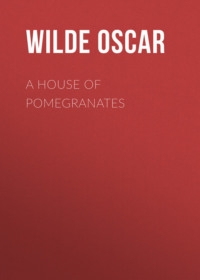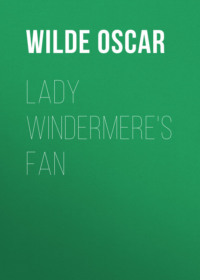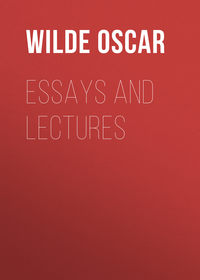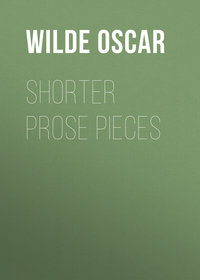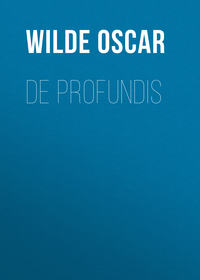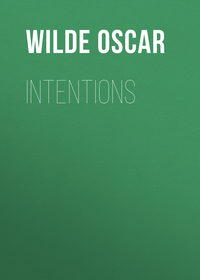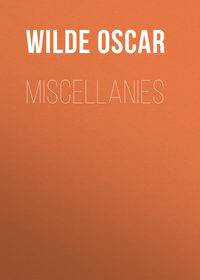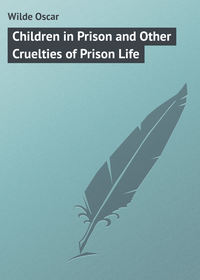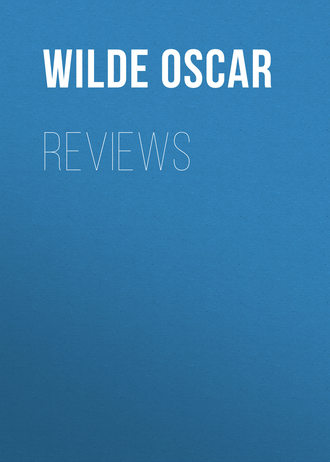 полная версия
полная версияReviews
The history of the game will be found very interesting by all card-lovers. Like most of the distinctly national products of America, it seems to have been imported from abroad and can be traced back to an Italian game in the fifteenth century. Euchre was probably acclimatised on the Mississippi by the Canadian voyageurs, being a form of the French game of Triomphe. It was a Kentucky citizen who, desiring to give his sons a few words of solemn advice for their future guidance in life, had them summoned to his deathbed and said to them, ‘Boys, when you go down the river to Orleens jest you beware of a game called Yucker where the jack takes the ace; – it’s unchristian!’ – after which warning he lay back and died in peace. And ‘it was Euchre which the two gentlemen were playing in a boat on the Missouri River when a bystander, shocked by the frequency with which one of the players turned up the jack, took the liberty of warning the other player that the winner was dealing from the bottom, to which the loser, secure in his power of self-protection, answered gruffly, “Well, suppose he is – it’s his deal, isn’t it?”’
The chapter On the Antiquity of Jests, with its suggestion of an International Exhibition of Jokes, is capital. Such an exhibition, Mr. Matthews remarks, would at least dispel any lingering belief in the old saying that there are only thirty-eight good stories in existence and that thirty-seven of these cannot be told before ladies; and the Retrospective Section would certainly be the constant resort of any true folklorist. For most of the good stories of our time are really folklore, myth survivals, echoes of the past. The two well-known American proverbs, ‘We have had a hell of a time’ and ‘Let the other man walk’ are both traced back by Mr. Matthews: the first to Walpole’s letters, and the other to a story Poggio tells of an inhabitant of Perugia who walked in melancholy because he could not pay his debts. ‘Vah, stulte,’ was the advice given to him, ‘leave anxiety to your creditors!’ and even Mr. William M. Evart’s brilliant repartee when he was told that Washington once threw a dollar across the Natural Bridge in Virginia, ‘In those days a dollar went so much farther than it does now!’ seems to be the direct descendant of a witty remark of Foote’s, though we must say that in this case we prefer the child to the father. The essay On the French Spoken by Those who do not Speak French is also cleverly written and, indeed, on every subject, except literature, Mr. Matthews is well worth reading.
On literature and literary subjects he is certainly ‘sadly to seek.’ The essay on The Ethics of Plagiarism, with its laborious attempt to rehabilitate Mr. Rider Haggard and its foolish remarks on Poe’s admirable paper Mr. Longfellow and Other Plagiarists, is extremely dull and commonplace and, in the elaborate comparison that he draws between Mr. Frederick Locker and Mr. Austin Dobson, the author of Pen and Ink shows that he is quite devoid of any real critical faculty or of any fine sense of the difference between ordinary society verse and the exquisite work of a very perfect artist in poetry. We have no objection to Mr. Matthews likening Mr. Locker to Mr. du Maurier, and Mr. Dobson to Randolph Caldecott and Mr. Edwin Abbey. Comparisons of this kind, though extremely silly, do not do much harm. In fact, they mean nothing and are probably not intended to mean anything. Upon the other hand, we really must protest against Mr. Matthews’ efforts to confuse the poetry of Piccadilly with the poetry of Parnassus. To tell us, for instance, that Mr. Austin Dobson’s verse ‘has not the condensed clearness nor the incisive vigor of Mr. Locker’s’ is really too bad even for Transatlantic criticism. Nobody who lays claim to the slightest knowledge of literature and the forms of literature should ever bring the two names into conjunction. Mr. Locker has written some pleasant vers de société, some tuneful trifles in rhyme admirably suited for ladies’ albums and for magazines. But to mention Herrick and Suckling and Mr. Austin Dobson in connection with him is absurd. He is not a poet. Mr. Dobson, upon the other hand, has produced work that is absolutely classical in its exquisite beauty of form. Nothing more artistically perfect in its way than the Lines to a Greek Girl has been written in our time. This little poem will be remembered in literature as long as Thyrsis is remembered, and Thyrsis will never be forgotten. Both have that note of distinction that is so rare in these days of violence, exaggeration and rhetoric. Of course, to suggest, as Mr. Matthews does, that Mr. Dobson’s poems belong to ‘the literature of power’ is ridiculous. Power is not their aim, nor is it their effect. They have other qualities, and in their own delicately limited sphere they have no contemporary rivals; they have none even second to them. However, Mr. Matthews is quite undaunted and tries to drag poor Mr. Locker out of Piccadilly, where he was really quite in his element, and to set him on Parnassus where he has no right to be and where he would not claim to be. He praises his work with the recklessness of an eloquent auctioneer. These very commonplace and slightly vulgar lines on A Human Skull:
It may have held (to shoot some random shots)Thy brains, Eliza Fry! or Baron Byron’s;The wits of Nelly Gwynne or Doctor Watts —Two quoted bards. Two philanthropic sirens.But this, I trust, is clearly understood,If man or woman, if adored or hated —Whoever own’d this Skull was not so goodNor quite so bad as many may have stated;are considered by him to be ‘sportive and brightsome’ and full of ‘playful humor,’ and ‘two things especially are to be noted in them – individuality and directness of expression.’ Individuality and directness of expression! We wonder what Mr. Matthews thinks these words mean.
Unfortunate Mr. Locker with his uncouth American admirer! How he must blush to read these heavy panegyrics! Indeed, Mr. Matthews himself has at least one fit of remorse for his attempt to class Mr. Locker’s work with the work of Mr. Austin Dobson, but like most fits of remorse it leads to nothing. On the very next page we have the complaint that Mr. Dobson’s verse has not ‘the condensed clearness’ and the ‘incisive vigor’ of Mr. Locker’s. Mr. Matthews should confine himself to his clever journalistic articles on Euchre, Poker, bad French and old jokes. On these subjects he can, to use an expression of his own, ‘write funny.’ He ‘writes funny,’ too, upon literature, but the fun is not quite so amusing.
Pen and Ink: Papers on Subjects of More or Less Importance. By Brander Matthews. (Longmans, Green and Co.)
SOME LITERARY NOTES – III
(Woman’s World, March 1889.)
Miss Nesbit has already made herself a name as a writer of graceful and charming verse, and though her last volume, Leaves of Life, does not show any distinct advance on her former work, it still fully maintains the high standard already achieved, and justifies the reputation of the author. There are some wonderfully pretty poems in it, poems full of quick touches of fancy, and of pleasant ripples of rhyme; and here and there a poignant note of passion flashes across the song, as a scarlet thread flashes through the shuttlerace of a loom, giving a new value to the delicate tints, and bringing the scheme of colour to a higher and more perfect key. In Miss Nesbit’s earlier volume, the Lays and Legends, as it was called, there was an attempt to give poetic form to humanitarian dreams and socialistic aspirations; but the poems that dealt with these subjects were, on the whole, the least successful of the collection; and with the quick, critical instinct of an artist, Miss Nesbit seems to have recognised this. In the present volume, at any rate, such poems are rare, and these few felicitous verses give us the poet’s defence:
A singer sings of rights and wrongs,Of world’s ideals vast and bright,And feels the impotence of songsTo scourge the wrong or help the right;And only writhes to feel how vainAre songs as weapons for his fight;And so he turns to love again,And sings of love for heart’s delight.For heart’s delight the singers bindThe wreath of roses round the head,And will not loose it lest they findTime victor, and the roses dead.‘Man can but sing of what he knows —I saw the roses fresh and red!’And so they sing the deathless rose,With withered roses garlanded.And some within their bosom hideTheir rose of love still fresh and fair,And walk in silence, satisfiedTo keep its folded fragrance rare.And some – who bear a flag unfurled —Wreathe with their rose the flag they bear,And sing their banner for the world,And for their heart the roses there.Yet thus much choice in singing is;We sing the good, the true, the just,Passionate duty turned to bliss,And honour growing out of trust.Freedom we sing, and would not loseHer lightest footprint in life’s dust.We sing of her because we choose,We sing of love because we must.Certainly Miss Nesbit is at her best when she sings of love and nature. Here she is close to her subject, and her temperament gives colour and form to the various dramatic moods that are either suggested by Nature herself or brought to Nature for interpretation. This, for instance, is very sweet and graceful:
When all the skies with snow were grey,And all the earth with snow was white,I wandered down a still wood way,And there I met my heart’s delightSlow moving through the silent wood,The spirit of its solitude:The brown birds and the lichened treeSeemed less a part of it than she.Where pheasants’ feet and rabbits’ feetHad marked the snow with traces small,I saw the footprints of my sweet —The sweetest woodland thing of all.With Christmas roses in her hand,One heart-beat’s space I saw her stand;And then I let her pass, and stoodLone in an empty world of wood.And though by that same path I’ve passedDown that same woodland every day,That meeting was the first and last,And she is hopelessly away.I wonder was she really there —Her hands, and eyes, and lips, and hair?Or was it but my dreaming sentHer image down the way I went?Empty the woods are where we met —They will be empty in the spring;The cowslip and the violetWill die without her gathering.But dare I dream one radiant dayRed rose-wreathed she will pass this wayAcross the glad and honoured grass;And then – I will not let her pass.And this Dedication, with its tender silver-grey notes of colour, is charming:
In any meadow where your feet may tread,In any garland that your love may wear,May be the flower whose hidden fragrance shedWakes some old hope or numbs some old despair,And makes life’s grief not quite so hard to bear,And makes life’s joy more poignant and more dearBecause of some delight dead many a year.Or in some cottage garden there may beThe flower whose scent is memory for you;The sturdy southern-wood, the frail sweet-pea,Bring back the swallow’s cheep, the pigeon’s coo,And youth, and hope, and all the dreams they knew,The evening star, the hedges grey with mist,The silent porch where Love’s first kiss was kissed.So in my garden may you chance to findOr royal rose or quiet meadow flower,Whose scent may be with some dear dream entwined,And give you back the ghost of some sweet hour,As lilies fragrant from an August shower,Or airs of June that over bean-fields blow,Bring back the sweetness of my long ago.All through the volume we find the same dexterous refining of old themes, which is indeed the best thing that our lesser singers can give us, and a thing always delightful. There is no garden so well tilled but it can bear another blossom, and though the subject-matter of Miss Nesbit’s book is as the subject-matter of almost all books of poetry, she can certainly lend a new grace and a subtle sweetness to almost everything on which she writes.
The Wanderings of Oisin and Other Poems is from the clever pen of Mr. W. B. Yeats, whose charming anthology of Irish fairy-tales I had occasion to notice in a recent number of the Woman’s World. 9 It is, I believe, the first volume of poems that Mr. Yeats has published, and it is certainly full of promise. It must be admitted that many of the poems are too fragmentary, too incomplete. They read like stray scenes out of unfinished plays, like things only half remembered, or, at best, but dimly seen. But the architectonic power of construction, the power to build up and make perfect a harmonious whole, is nearly always the latest, as it certainly is the highest, development of the artistic temperament. It is somewhat unfair to expect it in early work. One quality Mr. Yeats has in a marked degree, a quality that is not common in the work of our minor poets, and is therefore all the more welcome to us – I mean the romantic temper. He is essentially Celtic, and his verse, at its best, is Celtic also. Strongly influenced by Keats, he seems to study how to ‘load every rift with ore,’ yet is more fascinated by the beauty of words than by the beauty of metrical music. The spirit that dominates the whole book is perhaps more valuable than any individual poem or particular passage, but this from The Wanderings of Oisin is worth quoting. It describes the ride to the Island of Forgetfulness:
And the ears of the horse went sinking away in the hollow light,For, as drift from a sailor slow drowning the gleams of the world and the sun,Ceased on our hands and faces, on hazel and oak leaf, the light,And the stars were blotted above us, and the whole of the world was one;Till the horse gave a whinny; for cumbrous with stems of the hazel and oak,Of hollies, and hazels, and oak-trees, a valley was sloping awayFrom his hoofs in the heavy grasses, with monstrous slumbering folk,Their mighty and naked and gleaming bodies heaped loose where they lay.More comely than man may make them, inlaid with silver and gold,Were arrow and shield and war-axe, arrow and spear and blade,And dew-blanched horns, in whose hollows a child of three years oldCould sleep on a couch of rushes, round and about them laid.And this, which deals with the old legend of the city lying under the waters of a lake, is strange and interesting:
The maker of the stars and worldsSat underneath the market cross,And the old men were walking, walking,And little boys played pitch-and-toss.‘The props,’ said He, ‘of stars and worldsAre prayers of patient men and good.’The boys, the women, and old men,Listening, upon their shadows stood.A grey professor passing cried,‘How few the mind’s intemperance rule!What shallow thoughts about deep things!The world grows old and plays the fool.’The mayor came, leaning his left ear —There were some talking of the poor —And to himself cried, ‘Communist!’And hurried to the guardhouse door.The bishop came with open book,Whispering along the sunny path;There was some talking of man’s God,His God of stupor and of wrath.The bishop murmured, ‘Atheist!How sinfully the wicked scoff!’And sent the old men on their way,And drove the boys and women off.The place was empty now of people;A cock came by upon his toes;An old horse looked across the fence,And rubbed along the rail his nose.The maker of the stars and worldsTo His own house did Him betake,And on that city dropped a tear,And now that city is a lake.Mr. Yeats has a great deal of invention, and some of the poems in his book, such as Mosada, Jealousy, and The Island of Statues, are very finely conceived. It is impossible to doubt, after reading his present volume, that he will some day give us work of high import. Up to this he has been merely trying the strings of his instrument, running over the keys.
* * * * *Lady Munster’s Dorinda is an exceedingly clever novel. The heroine is a sort of well-born Becky Sharp, only much more beautiful than Becky, or at least than Thackeray’s portraits of her, which, however, have always seemed to me rather ill-natured. I feel sure that Mrs. Rawdon Crawley was extremely pretty, and I have never understood how it was that Thackeray could caricature with his pencil so fascinating a creation of his pen. In the first chapter of Lady Munster’s novel we find Dorinda at a fashionable school, and the sketches of the three old ladies who preside over the select seminary are very amusing. Dorinda is not very popular, and grave suspicions rest upon her of having stolen a cheque. This is a startling début for a heroine, and I was a little afraid at first that Dorinda, after undergoing endless humiliations, would be proved innocent in the last chapter. It was quite a relief to find that Dorinda was guilty. In fact, Dorinda is a kleptomaniac; that is to say, she is a member of the upper classes who spends her time in collecting works of art that do not belong to her. This, however, is only one of her accomplishments, and it does not occupy any important place in the story till the last volume is reached. Here we find Dorinda married to a Styrian Prince, and living in the luxury for which she had always longed. Unfortunately, while staying in the house of a friend she is detected stealing some rare enamels. Her punishment, as described by Lady Munster, is extremely severe; and when she finally commits suicide, maddened by the imprisonment to which her husband had subjected her, it is difficult not to feel a good deal of pity for her. Lady Munster writes a very clever, bright style, and has a wonderful faculty of drawing in a few sentences the most lifelike portraits of social types and social exceptions. Sir Jasper Broke and his sister, the Duke and Duchess of Cheviotdale, Lord and Lady Glenalmond, and Lord Baltimore, are all admirably drawn. The ‘novel of high life,’ as it used to be called, has of late years fallen into disrepute. Instead of duchesses in Mayfair, we have philanthropic young ladies in Whitechapel; and the fashionable and brilliant young dandies, in whom Disraeli and Bulwer Lytton took such delight, have been entirely wiped out as heroes of fiction by hardworking curates in the East End. The aim of most of our modern novelists seems to be, not to write good novels, but to write novels that will do good; and I am afraid that they are under the impression that fashionable life is not an edifying subject. They wish to reform the morals, rather than to portray the manners of their age. They have made the novel the mode of propaganda. It is possible, however, that Dorinda points to some coming change, and certainly it would be a pity if the Muse of Fiction confined her attention entirely to the East End.
* * * * *The four remarkable women whom Mrs. Walford has chosen as the subjects of her Four Biographies from ‘Blackwood’ are Jane Taylor, Elizabeth Fry, Hannah More, and Mary Somerville. Perhaps it is too much to say that Jane Taylor is remarkable. In her day she was said to have been ‘known to four continents,’ and Sir Walter Scott described her as ‘among the first women of her time’; but no one now cares to read Essays in Rhyme, or Display, though the latter is really a very clever novel and full of capital things. Elizabeth Fry is, of course, one of the great personalities of this century, at any rate in the particular sphere to which she devoted herself, and ranks with the many uncanonised saints whom the world has loved, and whose memory is sweet. Mrs. Walford gives a most interesting account of her. We see her first a gay, laughing, flaxen-haired girl, ‘mightily addicted to fun,’ pleased to be finely dressed and sent to the opera to see the ‘Prince,’ and be seen by him; pleased to exhibit her pretty figure in a becoming scarlet riding-habit, and to be looked at with obvious homage by the young officers quartered hard by, as she rode along the Norfolk lanes; ‘dissipated’ by simply hearing their band play in the square, and made giddy by the veriest trifle: ‘an idle, flirting, worldly girl,’ to use her own words. Then came the eventful day when ‘in purple boots laced with scarlet’ she went to hear William Savery preach at the Meeting House. This was the turning-point of her life, her psychological moment, as the phrase goes. After it came the era of ‘thees’ and ‘thous,’ of the drab gown and the beaver hat, of the visits to Newgate and the convict ships, of the work of rescuing the outcast and seeking the lost. Mrs. Walford quotes the following interesting account of the famous interview with Queen Charlotte at the Mansion-House:
Inside the Egyptian Hall there was a subject for Hayter – the diminutive stature of the Queen, covered with diamonds, and her countenance lighted up with the kindest benevolence; Mrs. Fry, her simple Quaker’s dress adding to the height of her figure – though a little flushed – preserving her wonted calmness of look and manner; several of the bishops standing near; the platform crowded with waving feathers, jewels, and orders; the hall lined with spectators, gaily and nobly clad, and the centre filled with hundreds of children, brought there from their different schools to be examined. A murmur of applause ran through the assemblage as the Queen took Mrs. Fry by the hand. The murmur was followed by a clap and a shout, which was taken up by the multitudes without till it died away in the distance.
Those who regard Hannah More as a prim maiden lady of the conventional type, with a pious and literary turn of mind, will be obliged to change their views should they read Mrs. Walford’s admirable sketch of the authoress of Percy. Hannah More was a brilliant wit, a femme d’esprit, passionately fond of society, and loved by society in return. When the serious-minded little country girl, who at the age of eight had covered a whole quire of paper with letters seeking to reform imaginary depraved characters, and with return epistles full of contrition and promises of amendment, paid her first visit to London, she became at once the intimate friend of Johnson, Burke, Sir Joshua Reynolds, Garrick, and most of the distinguished people of the day, delighting them by her charm, and grace, and wit. ‘I dined at the Adelphi yesterday,’ she writes in one of her letters. ‘Garrick was the very soul of the company, and I never saw Johnson in more perfect good-humour. After all had risen to go we stood round them for above an hour, laughing, in defiance of every rule of decorum and Chesterfield. I believe we should never have thought of sitting down, nor of parting, had not an impertinent watchman been saucily vociferating. Johnson outstaid them all, and sat with me for half an hour.’ The following is from her sister’s pen:
On Tuesday evening we drank tea at Sir Joshua’s with Dr. Johnson. Hannah is certainly a great favourite. She was placed next him, and they had the entire conversation to themselves. They were both in remarkably high spirits, and it was certainly her lucky night; I never heard her say so many good things. The old genius was as jocular as the young one was pleasant. You would have imagined we were at some comedy had you heard our peals of laughter. They certainly tried which could ‘pepper the highest,’ and it is not clear to me that the lexicographer was really the highest seasoner.
Hannah More was certainly, as Mrs. Walford says, ‘the fêted and caressed idol of society.’ The theatre at Bristol vaunted, ‘Boast we not a More?’ and the learned cits at Oxford inscribed their acknowledgment of her authority. Horace Walpole sat on the doorstep – or threatened to do so – till she promised to go down to Strawberry Hill; Foster quoted her; Mrs. Thrale twined her arms about her; Wilberforce consulted her and employed her. When The Estimate of the Religion of the Fashionable World was published anonymously, ‘Aut Morus, aut Angelus,’ exclaimed the Bishop of London, before he had read six pages. Of her village stories and ballads two million copies were sold during the first year. Cælebs in Search of a Wife ran into thirty editions. Mrs. Barbauld writes to tell her about ‘a good and sensible woman’ of her acquaintance, who, on being asked how she contrived to divert herself in the country, replied, ‘I have my spinning-wheel and my Hannah More. When I have spun one pound of flax I put on another, and when I have finished my book I begin it again. I want no other amusement.’ How incredible it all sounds! No wonder that Mrs. Walford exclaims, ‘No other amusement! Good heavens! Breathes there a man, woman, or child with soul so quiescent nowadays as to be satisfied with reels of flax and yards of Hannah More? Give us Hannah’s company, but not – not her writings!’ It is only fair to say that Mrs. Walford has thoroughly carried out the views she expresses in this passage, for she gives us nothing of Hannah More’s grandiloquent literary productions, and yet succeeds in making us know her thoroughly. The whole book is well written, but the biography of Hannah More is a wonderfully brilliant sketch, and deserves great praise.


